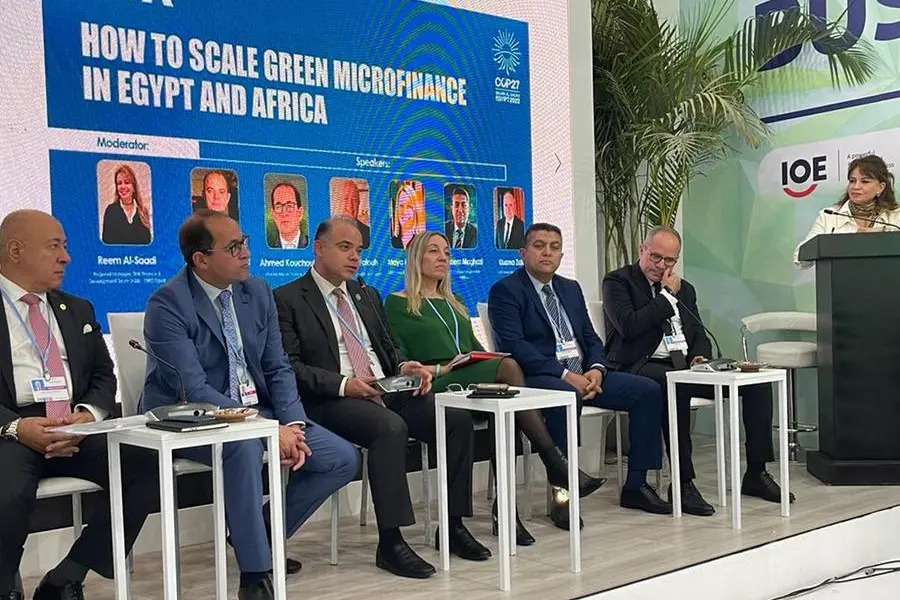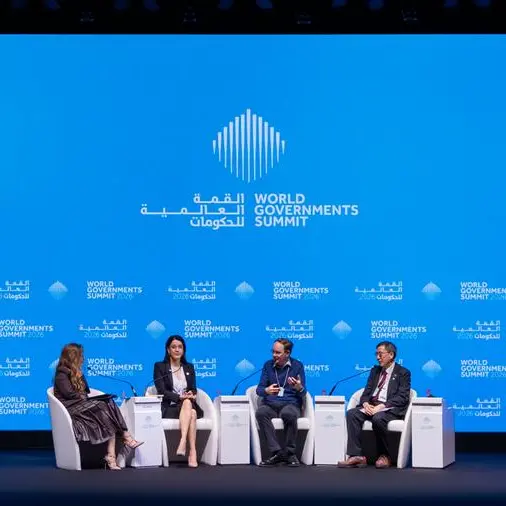PHOTO
Sharm ElSheikh: Integrated Fintech group AMAN Holding co-hosted a panel discussion on “How to Scale Green Microfinance in Egypt and Africa” in COP27 in Sharm El-Sheikh as part of their commitment to promote sustainable development across Egypt and Africa.
The session was held at the Blue Zone of the Business Pavilion at COP27, and its’ main focus was to explore the role of green microfinancing in combating climate change, the opportunities and challenges in scaling the industry, and methods to accelerate the transition to a more resilient and greener economy.
Prominent figures of the microfinance sector participated in the session including: Mohamed Farid Saleh, Executive Chairman of Financial Regulatory Authority and IOSCO Vice Chair; Ahmed Kouchouk, Vice Minister of Finance; Maya Hennerkes, Director, Climate Strategy and Delivery, EBRD; Yehia Aboul Fotouh, Deputy Chairman National Bank of Egypt; Usama Zaki, CEO of Raya Manufacturing; Hazem Moghazy, CEO of AMAN Financial Services.
AMAN Holding seeks to accelerate the mainstream adoption of green financing and practices, and have long championed sustainable economic development through services and products, in line with Egypt’s National Strategy for Climate Change 2050.
The Integrated Fintech group is also considering the launch of a new package of green financing products to promote climate action by utilizing Egyptians' entrepreneurial spirit through financing small project owners to encourage the use of clean and green practices. Through this, the company hopes to contribute to building an inclusive, sustainable, and resilient future for all.
Hazem Moghazy, CEO of AMAN Financial Services, when asked, highlighted the opportunities and challenges in the field of green microfinance in Egypt: “The rapidly growing sector of microfinance, 40% YOY growth, is a vital contributor to climate action initiatives since it caters for a wide segment of consumers and businesses of all sizes. However, regardless of the attention green microfinance is getting from regulators, banks and financial institutions, the lack of awareness within the clients is one of the things hindering its contribution to transition to green. Likewise, the risk and low ROI compared to its carbon emitting equivalent is another factor.”
“On the other hand, the market size is huge, rapidly growing and rich in untapped opportunities with 5.5 million families and beneficiaries expected to reach 10 million by 2030. That’s why all 5 stakeholders must joint efforts to incentivize products and attract more and more beneficiaries to adopt or transform into green in the benefit of the environment, the people and the economy.” Moghazy explained.
Green microfinance is a financial service that targets green and eco-friendly projects in order to improve environmental conditions and achieve sustainability goals. During 2021 and 2022, Aman Financial Services has financed the conversion of 3500 cars from petrol to Natural Gas with zero interest rate. The initiative is a real reflection of the partnership between the Government, Private sector and banks.
-Ends-
About AMAN:
AMAN Group comprises three companies “AMAN Financial Services”, “AMAN Microfinance” and “AMAN E-Payments”. Additionally, the Group is among the pioneers in Egypt adopting the State’s vision to bolster digital transformation and financial inclusion. AMAN Group has also provided an all-inclusive Egyptian model, utilizing the untapped promising opportunities in the emerging fields of non-banking financial technology. As for operations, the Group provides over 2000 financial services and over 2 million transactions take place daily through its network with affordable prices and exceptional service empowering the unbanked to be self-sufficient financially. Moreover, the companies had served 550 K clients in consumer financing with a portfolio of 5.5 Bn. L.E. over the period of 5 years and also served 350 K business owner in Microfinancing with a portfolio of 6.2 Bn., in a remarkable short period, has been able to become a leader in its field leading the non-banking financial sectors while providing many innovative services and products.




















